Globalization, for all its significance to the international world order, is a hotly debated phenomenon. Some see it as a triumph of international cooperation, while others see it as a covert extension of imperalism; some view it as the key to economic prosperity, while others view it as a threat to economic security. How a person views globalization can vary tremendously based on their nationality, line of work, political affiliation, and so much more.
No matter what your view on globalization is, one thing is undeniable: the process of globalization over millenia has fundamentally altered the way humans interact with and relate to each other, from the economy to popular culture to the very food we eat.
For those of you seeking to further inform your opinion of this complex and controversial phenomenon, here are eight eye-opening books about globalization that will change the way you view the world.

1492
This pop history book tells the story of globalization through the lens of one of the most significant years in its development. Felipe Fernandez-Armesto immerses readers in the place and time of voyagers around the world who sought new trade routes and, in the process, connected the world and changed the very ecological system of the planet.
Rather than a mere account of the explorers themelves, 1492 illuminates the entire time period, allowing readers to experience the wonder and folly of this moment in history from a variety of perspectives, as though they themselves were there.
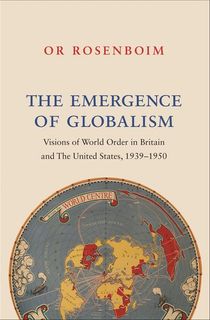
The Emergence of Globalism
Before there was globalism as we know it today, there was colonialism. As American and British imperialism began to wane in the postwar years, Western intellectuals, expats, and world leaders were confronted with the question of how to embrace global pluralism and unity at the same time. The result was the philosophy of globalism, a concept so ingrained in our views today that it can be difficult to imagine a world without it.
Through in-depth portraits of leading globalist thinkers such as Owen Lattimore and H.G. Wells, Or Rosenboim captures a pivotal moment in the development of the philosophy that has defined the modern world order.
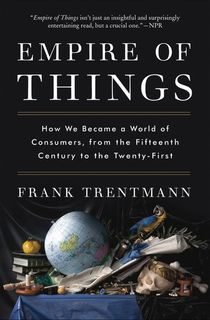
Empire of Things
Though not directly about globalism, Empire of Things traces its development through the lens of consumerism. In today's world, what we buy and how much we spend is increasingly tied to both our identities and our economy's success. The modern global economy is defined by consumerism, but was it always this way?
Frank Trentmann answers this question and more in his fascinating history of the modern material world, from Renaissance Italy to late Ming China to the present. Witness the story of globalization through the exchange of goods that facilitated it, from tobacco and indigo to Indian chintz and Chinese porcelain. Empire of Things is a great read for anyone looking to understand more about this pivotal aspect of globalism.
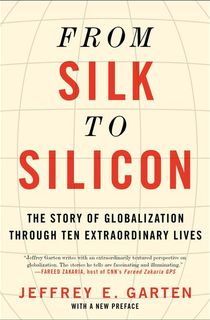
From Silk to Silicon
Gain insight on globalization through 10 individuals who were pivotal to its development. From Genghis Khan, who unified Eurasia through conquest and trade in the 1300s, to Margaret Thatcher, whose policies ushered in an unprecedented (if controversial) era of free trade, these individuals shaped the process that in turn shaped the world.
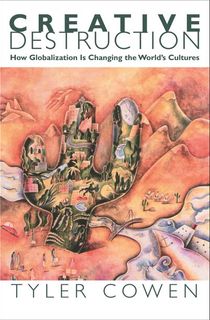
Creative Destruction
One of the most frequently-cited discontents of globalism is the erosion of local culture, and not without good reason. However, in Creative Destruction, Tyler Cowen makes the case for globalization as a conduit not for destruction, but transformation of culture. Rather than erode local artistic efforts, cross-cultural exchange paves the way for new and diverse art that couldn't exist without it.
Cowen tackles areas where globalization's critics have been most vocal, allowing audiences to understand not only the reasons for their critiques but the way in which Cowen challenges them. He expertly broaches subjects such as indigenous art, Hollywood's influence on global film, the importance (or insignificance) of national culture, and more.
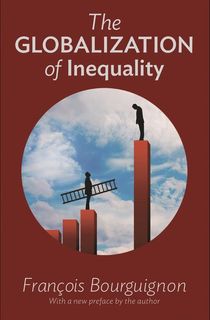
The Globalization of Inequality
Economist and policymaker François Bourguignon addresses one of the most glaring and frequently cited problems with modern globalism, exploring how and why economic inequality has increased drastically under the modern global economy both within and among nations. He examines the paradoxical connections between a vibrant world economy that has raised the living standard of over half a billion people in growing nations such as China, India, and Brazil, and the exponentially increasing inequality within countries.
Bourguignon not only outlines the problem of inequality, but offers solutions to a more equitable form of globalism, making his book a great read for anyone looking to constructively consider both globalism's benefits and its discontents.
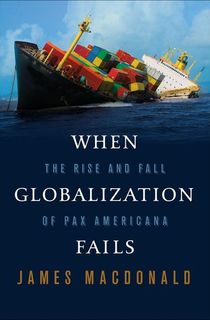
When Globalization Fails
James MacDonald deftly combines political, economic, and military history to argue that the era of Pax Americana established by globalism in the 20th century has come to an end. MacDonald provides a succint yet comprehensive account of contemporary globalism from the imperial 19th century, through the crises of WWI and WWII, and into a 20th century defined by American economic dominion over the global world order.
Now, MacDonald argues, the same dependence on trade that fostered internationl cooperation and American prosperity in the 20th century may expose America to insecurity in the 21st, as China's economic power grows and the U.S. is forced toward more drastic measures than trade to defend its supremacy. MacDonald is not unique his criticism of globalization, but his specific critique presents a new perspective on the growing case against it.

Globalization and the Challenges of a New Century
If you're looking for a primary source on modern globalism's development, this collection of major articles and essays published in the year 2000 may be for you. While its contents provide excellent insights into the modern debate around globalism, they also offer readers a unique glimpse into contemporary attitudes of the time period they are compiled from.
This book is an excellent resource for those interested in not only the history of globalism, but also in how the way we tell that history has evolved over time.
This post is sponsored by Open Road Media. Thank you for supporting our partners, who make it possible for The Archive to continue publishing the history stories you love.
